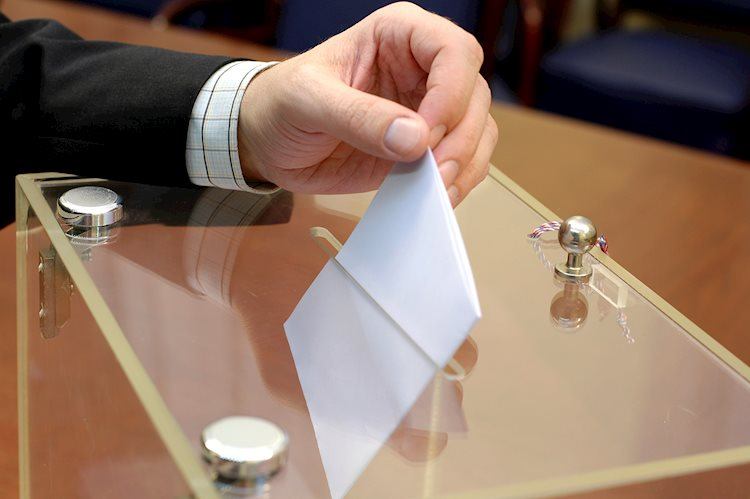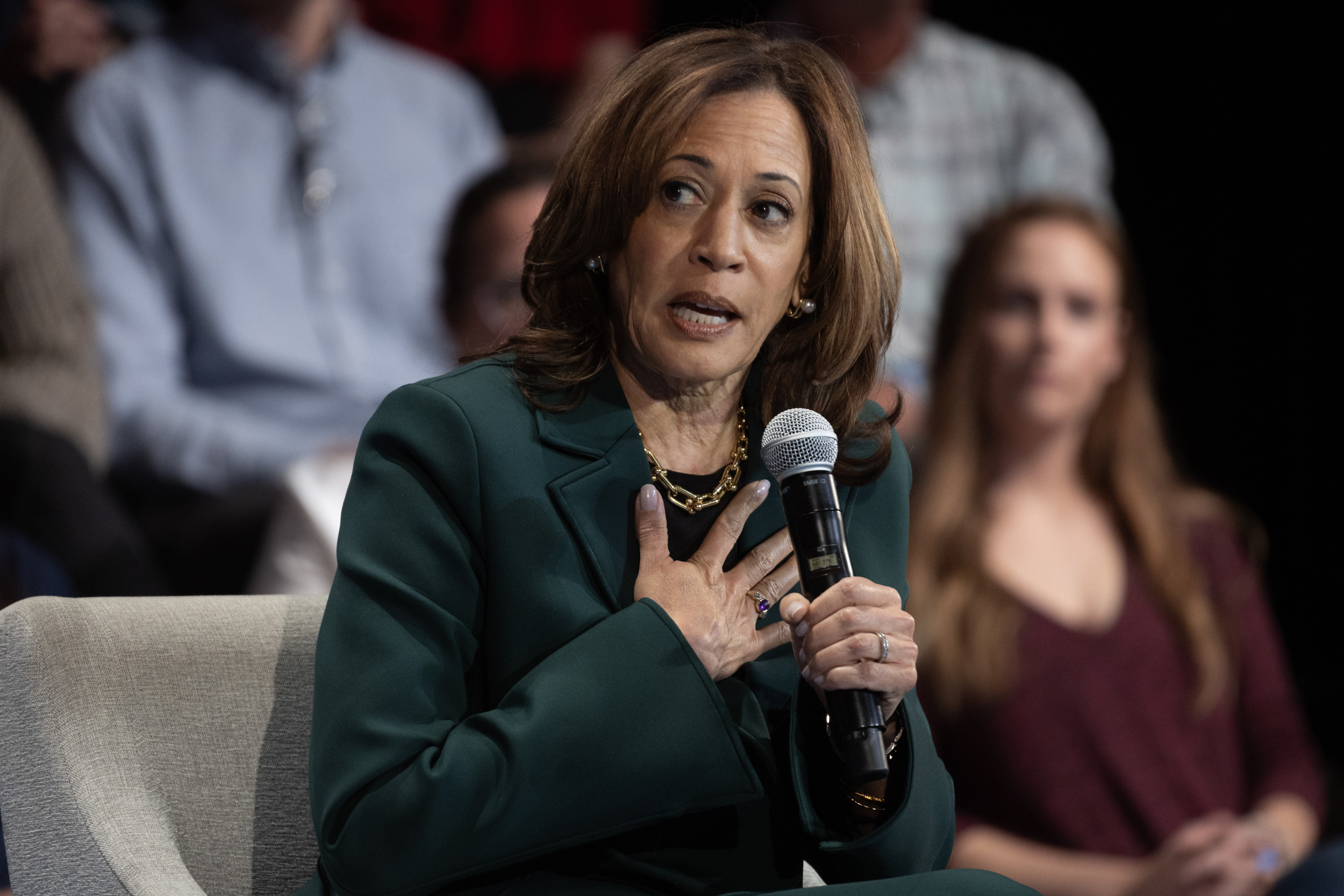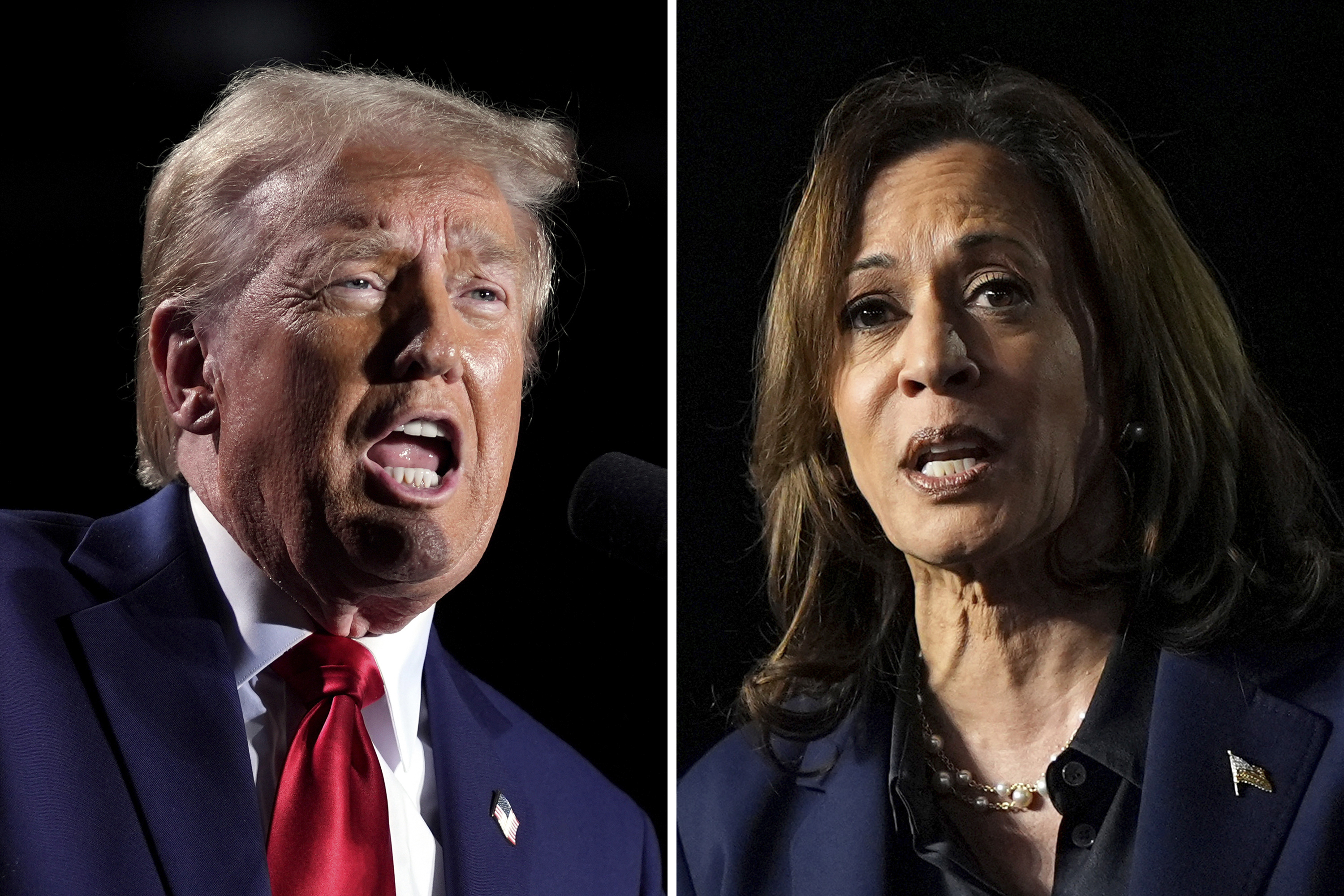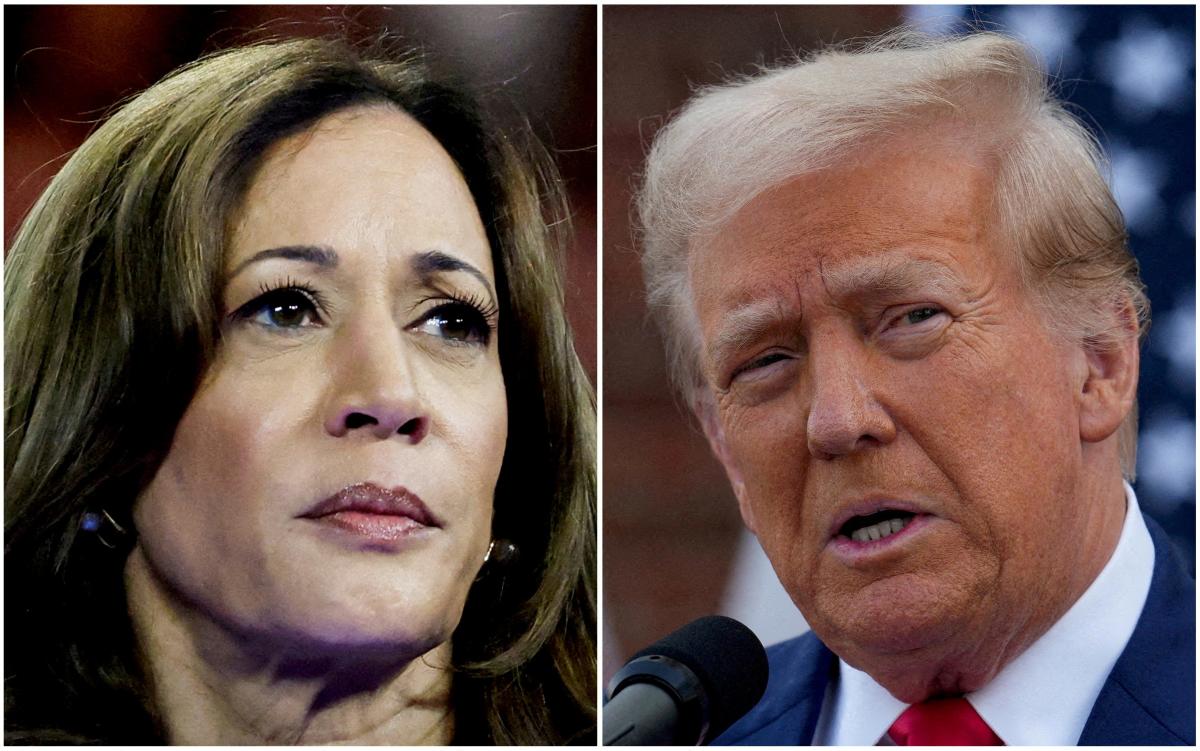- Wall Street prefers Trump to win the US presidential election and thinks it is likely.
- Trump’s tax cuts and looser regulation are the primary selling points.
- Kamala Harris winning could benefit Deere, Brookfield Renewable Corporation, NextEra Energy, Dr. Horton, or Centene.
- Donald Trump winning could benefit Baker Hughes, L3Harris Technologies, Coinbase, Robinhood, or Alphabet.
The 2024 US presidential election is finally almost upon us. After campaigns began on the Republican side about two years ago, it all ends (hopefully!) on Tuesday, November 5, when former President and Republican Party nominee Donald Trump faces off against Vice President and Democratic Party nominee Kamala Harris.
As it pertains to the market, traders want to know how to position themselves for all eventualities, and this market will deal with what analysts, hedge fund managers and expert observers say about which equities or industries stand to benefit from the policies of either candidate.
The lay of the electoral land
The latest Reuters-IPSOS poll on Tuesday shows Harris leading Trump nationally by about three percentage points. In 2020, however, Harris’ running mate, President Joe Biden, led in the polls by more than 6% only to scrape by in the final tally.
Trump supporters are taking heart that Harris’ polling lead is within the margin of error, and betting markets like Polymarket have begun to lean heavily in Trump’s favor. Either way, the US’ strange and antiquated Electoral College will determine the president. Only seven states – Pennsylvania, Michigan, Wisconsin, North Carolina, Georgia, Arizona and Nevada – are close enough to decide the occupant of the White House come January.
The general feeling on Wall Street is that any Republican is better for business. This is because Republicans stress low taxes, reducing oversight and cutting regulation to drive corporate profits. Democrats instead focus on fighting monopolies, worker rights and making government investments in industrial policy.
Trump has thrown a wrench in this typical division of political policies by strongly supporting tariffs, which are universally hated on Wall Street. Tariffs directly lead to higher inflation in the short run, if not the long run.
“Of the two candidates, a Trump win would be most inflationary, and thus worse for US [Treasuries] in our view,” ING economists wrote after this first debate. They based this on the idea that tariffs combined with tax cuts would lead to higher price levels that would require the Federal Reserve (Fed) to keep interest rates higher than otherwise.
With his usual flare for grabbing headlines, Trump has suggested a 200% tariff on vehicles made in Mexico. This would affect Toyota, Nissan, Ford (F) and General Motors (GM), all of whom have large assembly plants there.
Additionally, Trump intends to end the $7,500 tax credit for electric vehicles (EVs), which may hurt Tesla (TSLA) and Rivian (RIVN).
Famed hedge fund manager Stanley Druckenmiller, who now manages his family office Duquesne Capital, said he doesn’t support either candidate: “Both of them think, apparently, that the government should have a major role in allocating capital, which I find frankly bizarre.”
Still, Druckenmiller, a long-time Republican, said that a Trump win seemed most likely and that it would engender a three to six-month rally that would peter out once higher interest rates from fixed-income put a dent in equity prices.
So who is better for stocks?
The truth is that there isn’t really enough data to say resolutely which Party’s president is better for the market. Sam Stovall, the chief investment officer for CFRA, studied the data between 1945 and 2020 and concluded that the best scenarios were when a Democratic president had a divided Congress, when a Democratic president had a Republican Congress and when a Republican President had a Republican Congress. The worst returns came from times when Republican presidents had divided or Democratic Congresses.
LPL Financial data shows that divided Congresses tend to offer the best returns (+17.2%). In second place are periods when the Republican Party has unified power in the legislature (+13.4%).
Most experts, however, tell you to ignore the question entirely.
“I’m tired of hearing ‘This is the biggest election in your lifetime. The reality is over time it doesn’t matter,’” said BlackRock’s founder, Larry Fink, in a recent interview.
Fink’s point is that the stock market tends to do well with presidents of either party and that investors should instead focus on what industries or investments will yield the best returns over the next four years rather than which president.
“We caution investors to not read too much into the probability of the election going one way or the other for the Presidency or House or Senate. In our view, once the results are in, company managements will adjust their strategies for the expected policy implications,” said Oppenheimer Asset Management’s chief investment strategist, John Stoltzfus.
Which stocks could benefit from a Trump win?
Seemingly, every analyst has a list of stocks this time of year that could be expected to outperform depending on who wins the White House.
Barclays was one of the first out this year, predicting that a Trump win will lead to gains for diagnostic and laboratory equipment maker Becton, Dickinson (BDX), Oil equipment maker Baker Hughes (BKR), Bitcoin bug MicroStrategy (MSTR) and defense contractor L3Harris Technologies (LHX).
Republicans have a reputation for focusing on opening up Oil & Gas leases for new investment, as well as benefiting defense companies. And Trump has talked up his favorability toward the crypto industry, even going as far as releasing his own crypto token while on the campaign trail.
Boutique investment bank Keefe, Bruyette & Woods says that most financial stocks will benefit from a Trump presidency. Laxer financial regulations would likely stem from Trump filling the many banking regulatory posts with officials from the industry. Stocks likely to benefit include Robinhood (HOOD), BlackRock (BLK), Coinbase (COIN) and Block (SQ).
Cantor Fitzgerald has chosen the Russell 2000, saying the small-cap index has been a laggard and would benefit from a Trump win.
With Trump more likely to fire Lina Khan, the current head of the Federal Trade Commission, Alphabet (GOOGL) may perform better under his leadership. Khan has subjected Alphabet to the opening salvo of what many expect will be the most serious antitrust case that any of the Magnificent Seven stocks have faced since Bill Gates’ Microsoft (MSFT) in the mid-1990s.
Which stocks could benefit from a Harris presidency?
One way to look at this question is to determine what stocks would flounder under a Trump presidency, and then choose those as beneficiaries under a Harris presidency. They might rebound if Trump can’t attack them further.
For instance, Trump singled out Deere (DE) as a company that may shift production to Mexico.
“I’m just notifying John Deere right now, if you do that, we’re putting a 200% tariff on everything you want to sell into the United States,” Trump told an audience of farmers in Pennsylvania, the largest and most important swing state.
Deere announced earlier this year that it would be laying off hundreds of employees in Illinois and Iowa due to lower demand and slimmer margins.
Other stocks that would fair badly under Trump’s anti-China focus and tariffs, according to Barclays, are Nike (NKE), LuluLemon Athletica (LULU), TJX Companies (TJX), Hasbro (HAS), Boeing (BA), Textron (TXT), Johnson Controls International (JCI), Apple (AAPL) and Qualcomm (QCOM).
Trump also announced a temporary 10% cap on credit card interest rates, which would hurt Capital One (COF), American Express (AXP) and JPMorgan (JPM). These stocks could be relieved instead if Harris wins.
One clear policy arena where Harris has been vocal concerns Medicare paying for home healthcare aides. This stands to benefit managed care companies like Centene (CNC) that already work with Medicare.
Another policy is her interest in lowering the cost of homeownership by spurring higher building volumes of new houses. Dr. Horton (DHI), one of the largest homebuilders in the United States, stands to benefit from a Harris presidency, according to Barclays, as well as HVAC provider Carrier Global (CARR).
Additionally, EV stocks like Rivian (RIVN) might benefit from a Harris win, based on expectations for saving the $7,500 tax cut. Other clean energy stocks could also outperform under her leadership, including wind powerhouse NextEra Energy (NEE) and Brookfield Renewable Corporation (BEPC).
Dow Jones FAQs
The Dow Jones Industrial Average, one of the oldest stock market indices in the world, is compiled of the 30 most traded stocks in the US. The index is price-weighted rather than weighted by capitalization. It is calculated by summing the prices of the constituent stocks and dividing them by a factor, currently 0.152. The index was founded by Charles Dow, who also founded the Wall Street Journal. In later years it has been criticized for not being broadly representative enough because it only tracks 30 conglomerates, unlike broader indices such as the S&P 500.
Many different factors drive the Dow Jones Industrial Average (DJIA). The aggregate performance of the component companies revealed in quarterly company earnings reports is the main one. US and global macroeconomic data also contributes as it impacts on investor sentiment. The level of interest rates, set by the Federal Reserve (Fed), also influences the DJIA as it affects the cost of credit, on which many corporations are heavily reliant. Therefore, inflation can be a major driver as well as other metrics which impact the Fed decisions.
Dow Theory is a method for identifying the primary trend of the stock market developed by Charles Dow. A key step is to compare the direction of the Dow Jones Industrial Average (DJIA) and the Dow Jones Transportation Average (DJTA) and only follow trends where both are moving in the same direction. Volume is a confirmatory criteria. The theory uses elements of peak and trough analysis. Dow’s theory posits three trend phases: accumulation, when smart money starts buying or selling; public participation, when the wider public joins in; and distribution, when the smart money exits.
There are a number of ways to trade the DJIA. One is to use ETFs which allow investors to trade the DJIA as a single security, rather than having to buy shares in all 30 constituent companies. A leading example is the SPDR Dow Jones Industrial Average ETF (DIA). DJIA futures contracts enable traders to speculate on the future value of the index and Options provide the right, but not the obligation, to buy or sell the index at a predetermined price in the future. Mutual funds enable investors to buy a share of a diversified portfolio of DJIA stocks thus providing exposure to the overall index.















